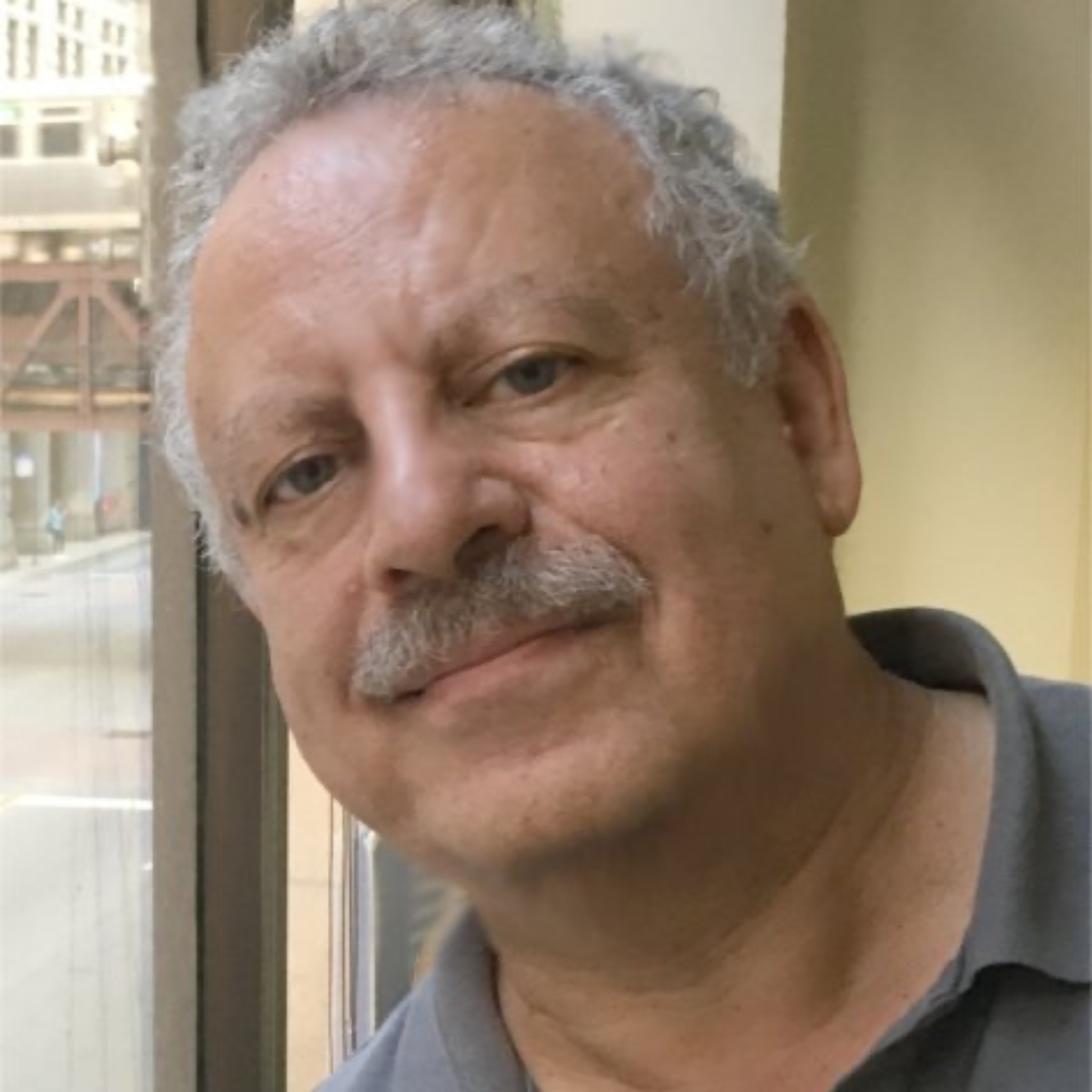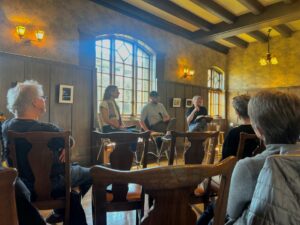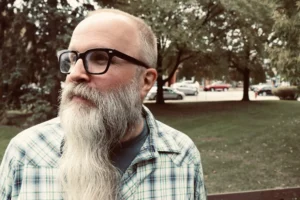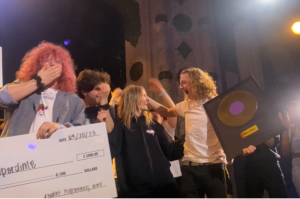Long before George Zarr became a radio professor at Columbia College Chicago, he was a young Manhattanite listening to old radio dramas and experiencing the strange world that is New York City.
“When I was younger, if you asked me what I wanted to do, it was like I had this desire that I couldn’t even say,” Zarr said of his past self.
A big moment for Zarr, in regard to creativity, came when he discovered how to make flip book cartoons as a young boy.
“My grandfather worked in a paper factory [and] he gave me a whole bunch of pads. [Then] my uncle drew a little flip thing, like a little stick figure with a bouncy ball [and] I thought, wow, so then I did it,” Zarr said. “[Eventually] I ended up with two or 300 of them.”
This was before Zarr discovered the potential of radio. His fascination with audio drama arose upon hearing old recordings of radio shows such as The Shadow and the Death House Rescue. Early on, in addition to his fascination, having hands-on access to the tools needed to create his own shows was a big help for Zarr’s creativity.
“My dad had a [movie] projector [and] I figured it out when I was in second grade. Then he came home with his tape recorder [and] I figured that out,” he said.
With a newfound skill, Zarr began starring in his own one-man audio dramas at home. In each show, every character, sound effect and all the music was done by Zarr himself. Once he had a finished product, he’d leave a handwritten note next to the tape machine for his father to find.
“He thought there were freaks in the house,” Zarr said of his father’s reaction to these tapes.
Years later, while in college at The Polytechnic Institute of New York, Zarr began to work on the school newspaper as well as kickstarting an underground radio station on campus. Through doing so, he and his friend Ed could broadcast their own music shows and audio dramas throughout the entire city.
During the same time, Zarr embarked on one of his more obscure but ambitious projects when he and a few friends recorded their own independently pressed record. The LP was composed of entirely original material and instrumentation with Zarr on acoustic guitar, piano, and the occasional lead vocal. In 1972, at 19 years old, he graduated from The Polytechnic Institute of New York, with a major in Operations Research and Systems Analysis and a minor in Electrical Engineering.
In the aftermath of college, Zarr and some friends, Tammy Pierce, Pam Peterson and Denise Robear, formed their own collective of scriptwriters called ZPPR. The 3 women and Zarr held writing sessions at a New York restaurant, Bogies, where the regulars consisted of “martial arts people” and Sherlock Holmes enthusiasts, also known as “Sherlockians.”
Although audio drama was a highly significant pastime for Zarr and he was doing a lot of writing, he still had to work various jobs during these post-college days.
“I [didn’t have] a mentor, nobody helped me. I had to figure all this out myself,” Zarr said. Over the span of a few years, he worked at a newspaper, became an IT, was the officer of a bank, and spent time at CBS records.
Eventually, after years of being in Manhattan, Zarr became a Chicagoan. The initial spark in regard to his relationship with the Midwest came when a friend suggested that he teach some audio-related courses at Interlochen Arts Academy in Michigan. After a couple of years at Interlochen, Zarr’s colleague, Marssie Mencotti, encouraged him to teach some courses at Columbia College Chicago.
Though living back in Manhattan at the time, Zarr served as a guest at Columbia for a little while before moving to Chicago and becoming a full-time professor in 2008. In addition to his new job, his musical for the SYFY channel, The First and Last Musical on Mars, was morphed into a stage play at the New Rock Theater downtown. Zarr has called the city home ever since and has continued to work extensively on new projects.
Most recently, a ‘Winnie-the-Pooh’ audiobook, in which he produced and directed, received AudioFile Magazine’s 2022 Earphones Award. While looking back on his past, Zarr gives some cherishable words of advice.
“Be flexible, be ready for opportunities, and go for them if you think they’re right. If they’re not right, louse it up and move on,” Zarr said.














Be First to Comment